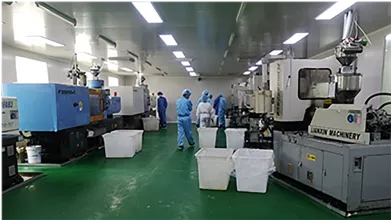Pharmaceutical Container Manufacturing Facility for Safe and Efficient Medicine Storage
The Medicine Bottle Factory A Pillar of Pharmaceutical Packaging
In the heart of the pharmaceutical industry lies a crucial component that often goes unnoticed—the medicine bottle factory. This facility is essential for manufacturing the containers that hold and protect various medications, ensuring they reach consumers in optimal condition. The process of producing medicine bottles, while seemingly straightforward, involves a complex interplay of materials science, engineering, and regulatory compliance.
The Importance of Medicine Bottles
Medicine bottles serve multiple purposes; they not only provide a safe and secure environment for pharmaceuticals but also play a vital role in branding and information dissemination. A well-designed bottle must prevent contamination, ensure dosage accuracy, and offer child-proof packaging options. Moreover, the labeling on these bottles contains vital information, including dosage instructions, expiration dates, and warnings about potential side effects or interactions.
Production Process
The production of medicine bottles begins with the selection of materials. Most commonly, pharmaceutical containers are made from glass or plastic. Glass is favored for its inert properties, safeguarding the integrity of the medication. However, plastic bottles made from polyethylene or polypropylene are increasingly popular due to their lightweight nature and lower transportation costs.
The manufacturing process typically starts with the molding of raw materials into the desired shape. In the case of glass bottles, molten glass is shaped using molds and then slowly cooled in an annealing lehr to relieve internal stresses. For plastic bottles, the process usually involves injection or blow molding, allowing for mass production and efficient cost management.
Quality control is paramount at every stage of production. Factories implement rigorous testing to ensure that the bottles meet industry standards. This includes checking for defects, verifying the accuracy of the dimensions, and conducting tests for chemical compatibility with the medications they hold.
Innovation and Technology
In recent years, technological advancements have revolutionized the medicine bottle manufacturing process. Automation plays a significant role, enhancing efficiency while reducing human error. Modern factories employ robotic systems for tasks like sorting, packaging, and palletizing, thus streamlining operations.
medicine bottle factory

Furthermore, the incorporation of smart packaging technology is gaining traction. This involves adding QR codes or NFC tags to medicine bottles, which can provide users with detailed product information, track usage, and even remind them to take their medications. Such innovations enhance patient compliance and contribute to better health outcomes.
Regulatory Compliance
The production of medicine bottles is heavily regulated due to the potential health risks associated with improper packaging. Factories must adhere to stringent guidelines set forth by health authorities such as the U.S. Food and Drug Administration (FDA) or the European Medicines Agency (EMA). These regulations cover every aspect of production, from material selection to labeling, and ensure that the final product is safe for consumer use.
Quality management systems, such as ISO certifications, are also commonly implemented in medicine bottle factories. These standards require continuous monitoring and improvement of manufacturing processes, fostering a culture of excellence and accountability within the facility.
Environmental Considerations
As the world becomes more environmentally conscious, medicine bottle factories are also adapting their practices. Many facilities are exploring sustainable materials and recycling programs to mitigate their environmental impact. For instance, the use of biodegradable plastics or the implementation of closed-loop systems helps reduce waste and resource consumption.
Additionally, production facilities are increasingly aware of their carbon footprint. Energy-efficient machinery and renewable energy sources are being integrated into operations to minimize environmental impact and promote sustainability in pharmaceutical packaging.
Conclusion
The medicine bottle factory stands as an unassuming yet indispensable contributor to the healthcare system. As various challenges and innovations continue to emerge in this field, the importance of these facilities cannot be overstated. By producing high-quality, reliable, and safe packaging solutions, medicine bottle factories play a vital role in ensuring that patients receive their medications securely, ultimately enhancing public health and wellbeing. As we move forward, the integration of advanced technologies and sustainable practices will shape the future of medicine packaging, ensuring that it meets the needs of both consumers and the environment.
-
Aesthetic Makeup Spray Bottles | Fine Mist Empty RefillableNewsAug.19,2025
-
White Plastic Veterinary Vaccine Vials | Lab Liquid BottlesNewsAug.18,2025
-
Plastic Medicine Liquid Bottle: Secure Flip Top Drug VialsNewsAug.17,2025
-
Durable 250ml Blue Plastic Vaccine Vial for Lab & Vet UseNewsAug.16,2025
-
Sterile Virus Sample Tubes: Secure & Reliable Specimen CollectionNewsAug.15,2025
-
White 250ml Plastic Vaccine Vial for Lab & Vet MedicineNewsAug.14,2025
























